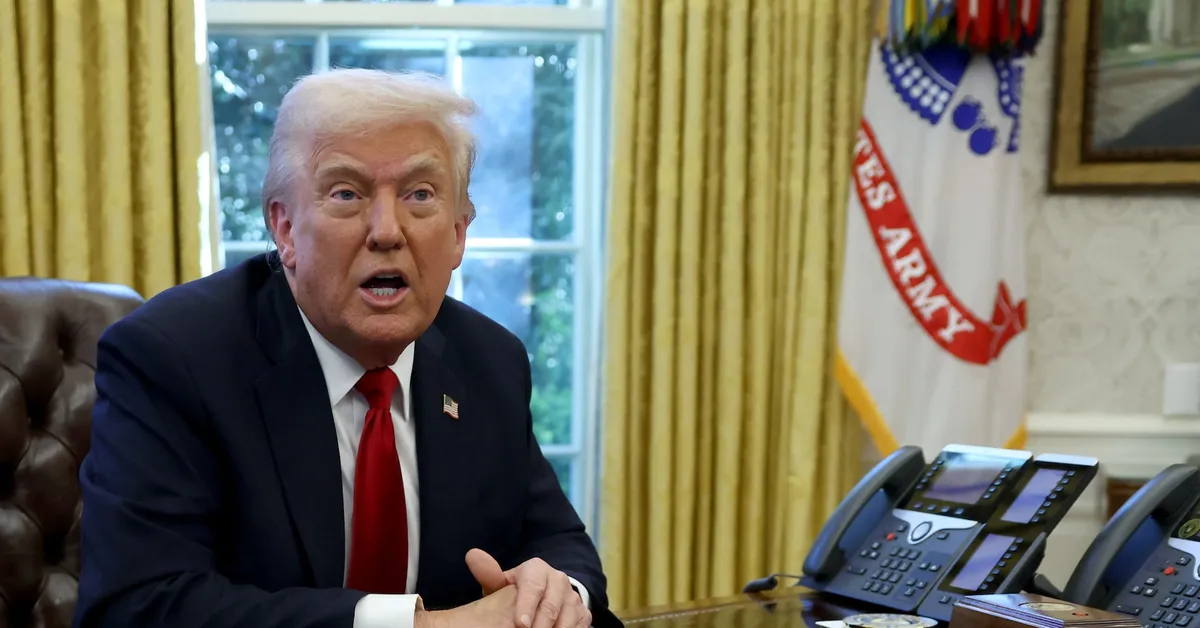
In a significant legal move, former President Donald Trump has petitioned the U.S. Supreme Court to allow the use of a 1798 law aimed at expediting the deportation of alleged Venezuelan gang members. This request aligns with Trump's administration's stringent approach to immigration and underscores the ongoing debate regarding the balance of power between the executive and judicial branches in matters of national security.
The Alien Enemies Act, a law that has historically been invoked only during times of war, is at the center of this legal challenge. On March 15, Judge James Boasberg of the Washington-based U.S. District Court issued a temporary halt on the deportations of Venezuelan nationals while a legal challenge to Trump's use of the act is underway. The Justice Department argues that the resolution of this case revolves around the crucial question of who possesses the authority to conduct sensitive national security operations: the president or the judiciary.
In a filing on March 28, the Justice Department reiterated its stance, asserting that the Constitution clearly grants the president the authority to manage these operations. The department emphasized that the republic cannot afford to challenge this fundamental aspect of governance. Trump's administration has designated members of the Tren de Aragua gang through a rigorous evaluation process, which is critical in justifying the deportations.
The American Civil Liberties Union (ACLU) has contested Trump's application of the Alien Enemies Act, arguing that it violates due process rights by preventing migrants from contesting their deportation. The ACLU's legal challenge seeks to protect the rights of those being rapidly deported, asserting that the act should only apply in declared wartime scenarios.
As the legal proceedings continue, the U.S. Court of Appeals for the District of Columbia Circuit upheld Judge Boasberg's temporary block on the deportations. This ongoing dispute has prompted Trump to express his frustrations with federal courts, which have consistently challenged various aspects of his administration's agenda since he took office.
Despite the judicial challenges, the Trump administration proceeded with deportation flights, transferring 238 Venezuelan men to El Salvador, where they are slated to be held in the country's Terrorism Confinement Center. Judge Boasberg has questioned whether the administration violated his order by allowing these flights to proceed after he issued the temporary block. Justice Department lawyers maintain that the flights had already exited U.S. airspace when the judge's written order was released, arguing that they were not obligated to return.
The political ramifications of this legal battle are significant. Trump has publicly called for the impeachment of Judge Boasberg, branding him a "Radical Left Lunatic" and a "troublemaker" on social media. This rhetoric has drawn criticism from Chief Justice John Roberts, highlighting the contentious nature of the current judicial landscape.
Family members of those facing deportation have denied the alleged gang affiliations, asserting that U.S. officials have misidentified individuals based on dubious criteria, such as tattoos. This has raised concerns about the accuracy and fairness of the deportation process, particularly in cases involving individuals like a Venezuelan professional soccer player who was labeled a gang member due to a tattoo honoring his favorite soccer team, Real Madrid.
As the legal landscape continues to evolve, all eyes are on the Supreme Court, where the outcome of this case could have lasting implications for immigration policy and the powers of the presidency in matters of national security.